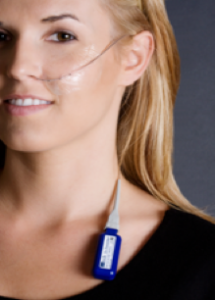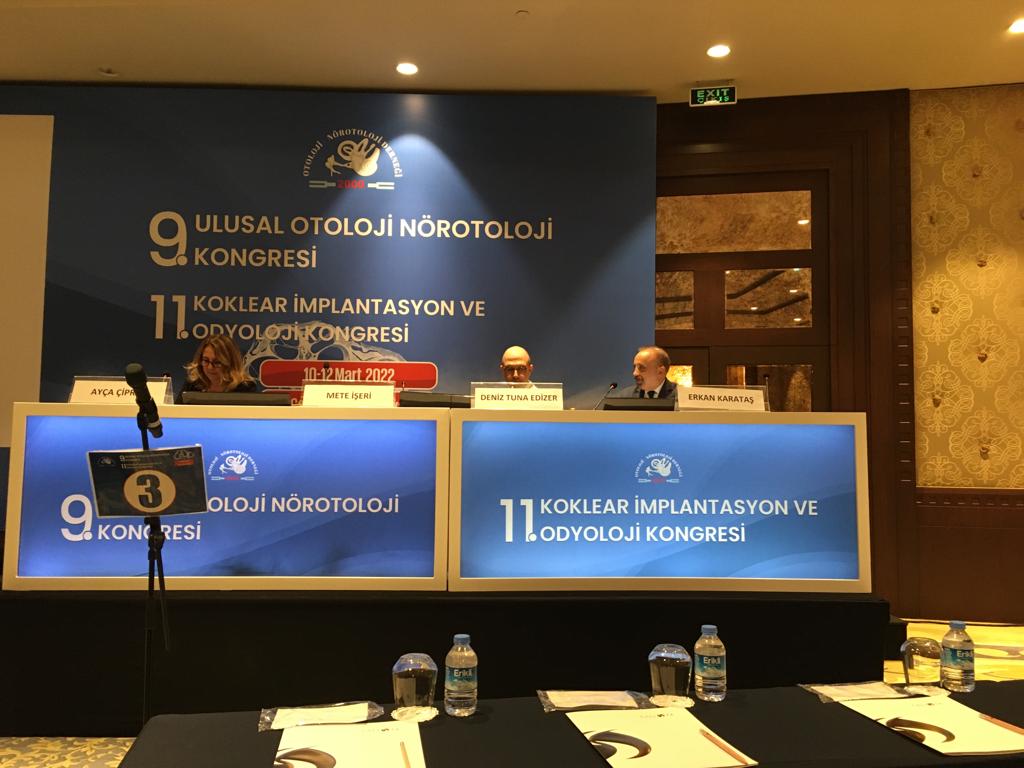LARYNGO PHARYNGEAL REFLUX (LPR)
What is LPR?

LPR is a condition that occurs in a person who has gastroesophageal reflux disease (GERD). Acid made in the stomach travels up the esophagus (swallowing tube). When that stomach acid gets to the throat, it is called laryngopharyngeal reflux (LPR).
What are the symptoms of LPR?
There are many symptoms of LPR, all of which relate to sensations in the throat. Fifty percent of people with LPR do not have symptoms of heartburn or an upset stomach. When there are symptoms, they include:
- Mild hoarseness
- Sensation of a lump in the throat
- Need to clear the throat
- Sensation of mucous sticking in the throat and/or post-nasal drip
- Chronic cough
- Difficulty swallowing
- Sore throat
- Red, swollen, or irritated voice box
What causes LPR?

LPR is caused by stomach acid that bubbles up into the throat as a result of GERD. Fortunately, most causes do not require medical care. They can be managed with lifestyle changes. To decrease your chance of LPR:
Do NOT:
- Eat acidic, spicy, and fatty foods
- Drink alcohol
- Smoke tobacco
- Drink caffeine-containing beverages (tea, coffee, soda, etc.)
- Eat chocolate
- Eat mint or mint-flavored foods
- Wear tight or binding clothing
- Become overly stressed – learn tools to help manage or reduce stress levels
DO:
- Maintain a healthy weight
- Avoid eating less than 2 hours before bedtime
Who gets LPR?
Anyone can get LPR, but it shows up more often as people age. People who have certain dietary habits, people who consistently wear tighter fitting or binding clothing, people who are overweight, and people who are overstressed are more likely to have laryngopharyngeal reflux.
How is LPR diagnosed?
Diagnosis is usually made based on the findings of irritation or swelling in the throat, more specifically in the back part of the voice box (see illustration). Most of the time, no further testing is needed to make the diagnosis. If testing is needed, three commonly used tests are a swallowing study, a direct look at the stomach and esophagus through a scope, and a pH test.
In the swallowing study, a special liquid called barium is swallowed. It coats the esophagus, stomach, and intestine so they are outlined on an x-ray. This allows the movement of food – as it passes from the mouth to the esophagus – to be viewed. Another method used to diagnosis LPR is to pass a specific type of scope through the mouth, down the esophagus and into the stomach. The scope allows the doctor to directly view the inside of the stomach and esophagus. A third test determines the level of acid in the throat. Although cancer is rare, tests may be ordered to rule out cancer.

How is LPR treated and how can it be prevented?
There are treatment options for people who have LPR. Most of the treatments can also be used as prevention measures.
- Follow a bland diet (low acid levels, low in fat, not spicy)
- Eat frequent, small meals
- Lose weight
- Avoid the use of alcohol, tobacco, and caffeine
- Do not eat food less than 2 hours before bedtime
- Raise the head of the bed before sleeping. Place a strong, solid object (like a board) under the top portion of the mattress. This will help prop up your head and the upper portion of your body, which will help keep stomach acid from backing up into the throat.
- Avoid clearing of the throat
- Take over-the-counter medications, including antacids; or proton pump inhibitors. Only take medications, both prescribed and over-the-counter, as directed.
- In very severe cases, surgery may be recommended as treatment
What can happen if LPR is not treated?
Untreated LPR can lead to: sore throat; chronic cough; swelling of the vocal folds (see illustration); ulcers (open sores) on the vocal folds; formation of granulomas (masses) in the throat; and worsening of asthma, emphysema and bronchitis. Untreated LPR also may play a role in the development of cancer of the voice box.
What is the prognosis/outlook for LPR?
The prognosis for LPR is very good because most of the causes can be controlled if a healthy lifestyle is followed. However, if LPR goes undiagnosed, the person affected can experience the medical conditions mentioned above as well as delayed healing.
.
LARİNGO FARENGEAL REFLÜ (LFR)
LFR nedir?

LFR, mide reflüsü olan kişilerde ortaya çıkan bir durumdur. Mide reflüsü, midede üretilen asit, yemek borusundan yukarı doğru kaçarsa ortaya çıkar. Mide asidi gırtlağa ve boğaza girdiğinde laringonfaringeal reflü (LFR oluşur)
.
LFR’nin semptomları nelerdir?
LFR’nin birçok belirtisi vardır, hepsi de boğazdaki semptomlar ile ilgilidir. LFR’li kişilerin% 50’sinde mide ekşimesi veya mide bulantısı belirtisi bulunmayabilir. Semptomlar olduğunda şunları içerir:
• Hafif ses kısıklığı
• Boğazda kitle hissi
• Boğazı temizleme hissi
• Boğazda yapışkan balgam hissi
• Kronik öksürük
• Yutma güçlüğü
• Boğaz ağrısı
• İltihaplı, şiş ve kırmızı ses telleri
LFR’ye neler neden olur?
LFR, mide asit reflüsünün boğaza ulaşması ile oluşur. Çoğu durum tıbbi tedavi gerektirmez. Yaşam tarzı değişiklikleriyle mide reflüsü azaltılabilir.
LFR gelişmemesi için dikkat edilmesi gerekenler:

Aşağıdakilerden sakınınız:
• Asitli, baharatlı ve yağlı yiyecek tüketimi
• Alkol
• Sigara dumanı
• Kafein içeren içecekler (çay, kahve, soda vb.)
• Çikolata
• Nane veya nane aromalı gıdalar
• Sıkı veya dar giysiler
• Aşırı stres
Aşağıdakilere dikkat ediniz:
• Sağlıklı kilo verme
• Yatmadan önce 2 saatten az yemek yemeyi bırakma
Kimlerde LFR görülür?
Herkes de LFR gelişebilir, ancak insanlar yaşlandıkça daha sık tespit edilir. Bazı beslenme alışkanlıkları olan insanlar, sıkı ve dar giysiler giyenler, aşırı kilolu kişiler ve aşırı stresli kişiler, larengofaringeal reflü hastalığına daha yatkındır.
LFR nasıl teşhis edilir?
Teşhis genellikle boğazdaki semptomlar ve klinik muayenesi ile konulur. Çoğu zaman, teşhisi yapmak için başka ileri tetkike gerek yoktur. İleri tetkikler ise yutma testleri, yemek borusu mide endoskopisi ve pH metredir. Yutkunma çalışmasında, baryum adı verilen özel bir sıvı yutulur. Özofagus, karın ve bağırsaklar baryum maddesi ile boyanır; daha sonra bir röntgen filminde bu alanlar incelenir. Bu tetkik, yiyeceklerin ağızdan özofagusa geçerken görülebilmesine izin verir. LFR’yi teşhis etmek için kullanılan diğer bir
yöntem, ağız yoluyla yemek borusundan aşağı doğru kamera ile inceleme yapılır. Endoskopi, doktorun mide ve özofagusun iç kısmını doğrudan görüntülemesine olanak tanır. Üçüncü bir test boğazdaki asidin seviyesini belirler.

LFR nasıl tedavi edilir ve nasıl önlenebilir?
LFR’li hastalar için tedavi seçenekleri vardır. Tedaviler çoğu kez koruyucu önlemlere uymaktır.
• Hafif diyet (düşük asit seviyeli, düşük yağ oranı, acısız)
• Sık aralıklı , küçük porsiyonlar ile yemek
• Kilo vermek
• Alkol, tütün ve kafein kullanmaktan kaçının
• Uyumadan önce, 2 saatten az bir süre yemek yemeyin
• Uyumadan önce yatağın başını kaldırın. Yatağın üst kısmının altına sağlam bir cisim (tahta gibi) yerleştirin. Bu, başınızı vücudunuzun üst kısmında tutmanıza yardımcı olur; bu da mide asidinin boğaza kaçmasına engel olur.
• boğazdan temizliği için güçlü hareketler yapmayın
• Antasitler veya proton pompa inhibitörleri ilaçları alınız;
Çok ciddi vakalarda, tedavi olarak cerrahi tavsiye edilebilir
Tedavi edilmeyen LFR’de ne olur?
Tedavi edilmemiş LFR aşağıdakilere yol açabilir: boğaz ağrısı; Kronik öksürük; Gırtlak ve ses tellerinde ödem, kızarıklık, ülserler ve yaralar, granülom gibi kitleler; ve astım, amfizem ve bronşitin alevlenmesi. Tedavi edilmeyen LFR, gırtlak kanseri gelişiminde de rol oynayabilir.
LFR’nin prognozu / gözlem sonuçları nedir?
LFR için prognoz çok iyidir, çünkü sağlıklı bir yaşam tarzı izlerseniz nedenlerin çoğunun kontrol altına alınması mümkündür. Bununla birlikte, LFR teşhis edilmezse, etkilenen kişi yukarıda bahsedilen tıbbi durumları ve semptomları yaşayabilir.
.



